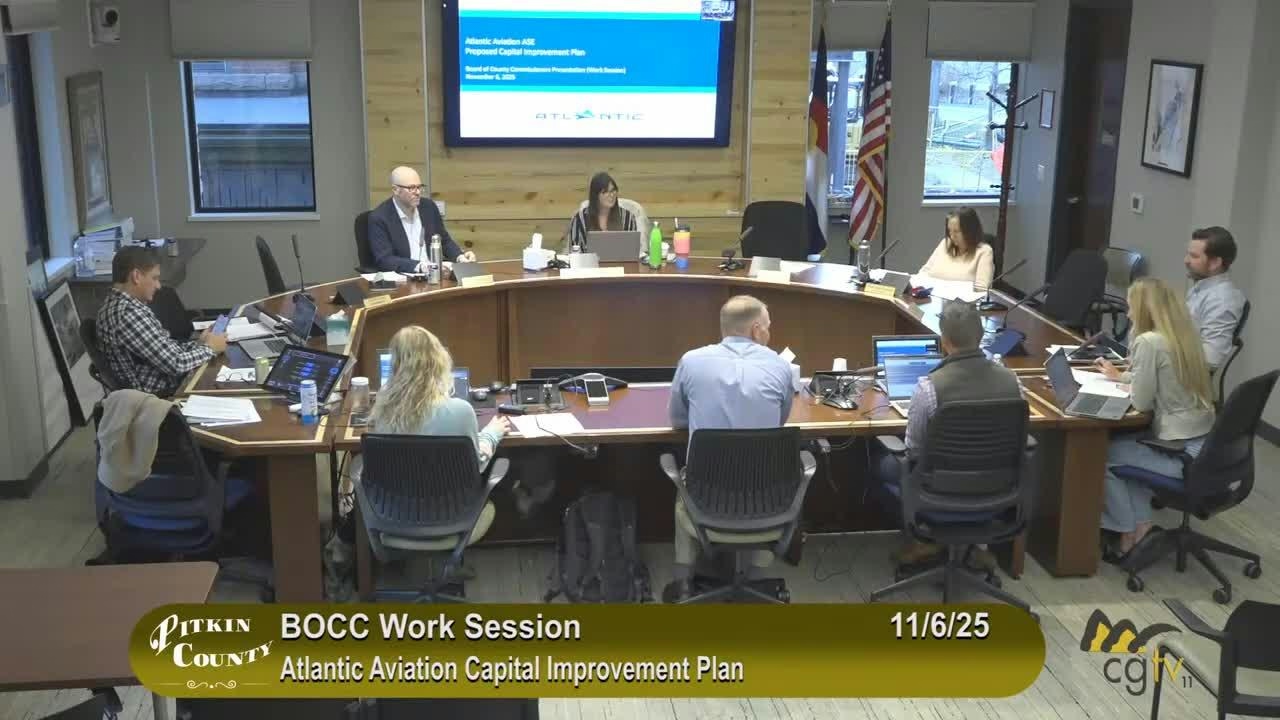AeroGenie — 您的智能副驾驶。
热门趋势
Categories
Atlantic Aviation Proposes FBO Expansion Including Sound Wall, Geothermal Snowmelt, and New Fuel Farm

Atlantic Aviation Proposes Major Expansion of FBO Facilities with Emphasis on Sustainability and Noise Mitigation
Atlantic Aviation has revealed a comprehensive capital improvement plan aimed at expanding and modernizing its fixed-base operator (FBO) facilities located on the east side of the airport. The proposal, presented to county officials on November 6, seeks to enhance operational efficiency while setting new benchmarks in environmental sustainability. Central to the plan is the construction of a landscaped berm accompanied by a substantial sound wall, designed to reduce engine noise impacting the residential neighborhood situated across Highway 82.
Strategic Relocation and Environmental Considerations
County staff detailed the competitive request-for-proposals and lease process that culminated in Atlantic Aviation’s selection, emphasizing the lease requirement for a detailed capital improvement plan. Representatives from Atlantic explained that the new FBO would be repositioned closer to the primary ramp. This strategic relocation is intended to reduce aircraft idling times, streamline taxi sequencing, and consequently minimize both emissions and noise exposure for nearby residents. Consultants supporting the project highlighted that the move would significantly decrease engine run-time for parked aircraft, thereby mitigating environmental impacts.
The preliminary design includes a 7,500-square-foot terminal building featuring an attached pilot lounge and tenant offices. The plan also calls for a 160,000-gallon jet-A fuel farm, with provisions to expand capacity to 200,000 gallons. Additional infrastructure improvements encompass a 24,000-square-foot community hangar with a ground support equipment and charter lean-to, as well as renovations to the existing maintenance hangar. Looking ahead, the proposal incorporates future provisions for an electric vertical takeoff and landing (eVTOL) pad and associated charging infrastructure. Notably, the plan integrates extensive geothermal and snow-melt systems in high-traffic public areas, underscoring the commitment to sustainable design. All new buildings are targeted for LEED certification, with aspirations to achieve LEED Gold where feasible, reflecting a broader industry trend toward environmentally responsible and technologically advanced aviation facilities.
Noise Mitigation and Regulatory Review
Noise modeling conducted by third-party consultant Landrum & Brown was presented to the county board, comparing current noise levels with projections following the installation of the berm and sound wall, which is expected to reach heights of 18 to 20 feet. According to Atlantic Aviation, the sound barrier would reduce noise levels in many residential areas from “possibly perceptible” to “unlikely perceptible” during typical engine and auxiliary power unit operations. The relocation of the FBO adjacent to the primary ramp would further reduce noise and emissions by enabling aircraft to taxi directly from the runway to parking, thereby limiting engine run-time during turnaround.
Board members raised inquiries regarding the timing of construction, workforce availability amid concurrent county projects, environmental review processes, and potential non-aeronautical impacts such as lighting and landscape buffering. County staff assured that project design would be coordinated with ongoing runway improvements to minimize conflicts. They also confirmed that the necessary Federal Aviation Administration (FAA) environmental review and categorical exclusion documentation would be submitted. The project is slated to undergo Planning and Zoning review, followed by a Board of County Commissioners (BOCC) resolution and public hearing.
Atlantic Aviation’s expansion faces potential challenges related to regulatory compliance, environmental assessments, and integration with existing airport infrastructure. The proposal may also intensify competition among FBO operators, prompting rivals to pursue similar upgrades or strategic partnerships to maintain market position. As the business aviation sector increasingly embraces sustainable and technologically advanced facilities, Atlantic’s plan positions the company to align with these evolving industry standards.
County staff will advance the project by presenting location and scope materials to Planning and the BOCC for an initial reading, with further coordination planned to synchronize the project’s phasing with the airport’s runway improvements.

Emirates Unveils Cabin Design for New Boeing 777X

Eighteen Years On, the Airbus A380 Remains Central to a $34 Billion Airline

How a boom in luxury airline seats is slowing down jet deliveries

Navitaire Outage Attributed to Planned Maintenance

DigiYatra Debuts Outside Aviation at India AI Impact Summit

Vietnam Orders Strengthen Boeing’s Commercial Outlook

Airbus Signals Uncertainty Over Future A400M Orders

JobsOhio Awards $2 Million Grant to Hartzell Propeller for Innovation Center

Collins Aerospace Tests Sidekick Autonomy Software on YFQ-42A for U.S. Air Force CCA Program

How the Airbus A350-1000 Compares to the Boeing 777
